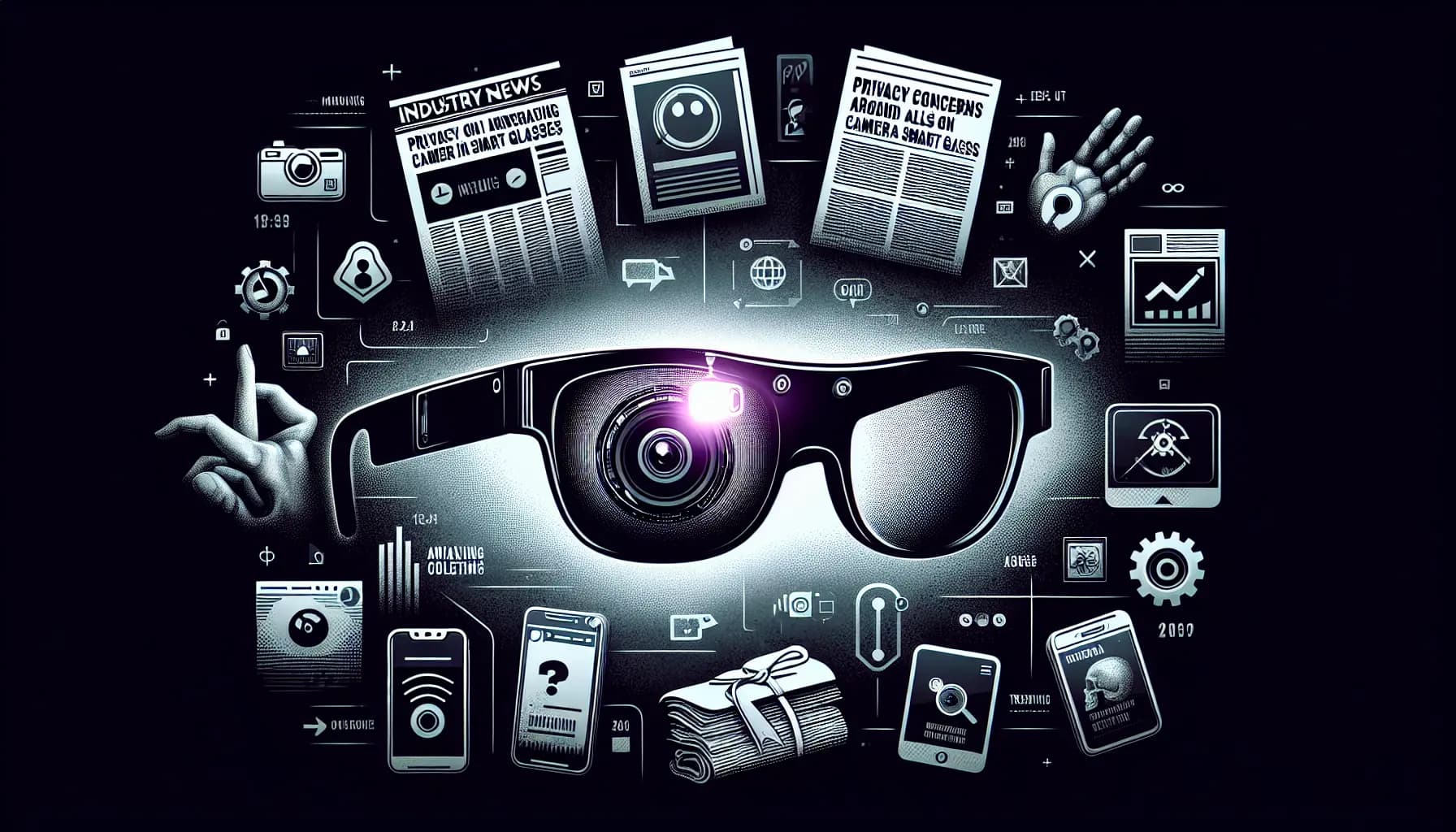
Privacy Concerns Around Always-On Cameras in Smart Glasses
Category: Trends & Industry News
Generated: 2025-04-06
Introduction
In recent years, smart glasses have transitioned from sci-fi dreams to everyday reality, being woven seamlessly into our digital lives. As these devices continue to surge in popularity, a new feature has sparked a significant conversation: the always-on cameras. While these cameras offer exciting new capabilities, they also bring substantial privacy concerns to the forefront. In today's tech-driven world, protecting our privacy is more crucial than ever.
The Rise of Smart Glasses
The journey of smart glasses from concept to commercial product has been propelled by remarkable technological advancements. With major tech giants like Google, Meta (formerly Facebook), and Snapchat leading the charge, these devices have captured the imagination of consumers. Smart glasses offer features like real-time information display, augmented reality (AR) experiences, and now, always-on camera capabilities, making them extremely attractive to tech enthusiasts and everyday users alike.
How Always-On Cameras Work
Always-on cameras in smart glasses operate by continuously capturing footage, integrating seamlessly with other smart features to enhance functionality. This continuous recording enables users to capture life’s spontaneous moments effortlessly. Additionally, it supports features like on-the-go video calls, instant photo capture, and even real-time navigation assistance. While these benefits are undeniably appealing, they come with a set of challenges that need careful consideration.
Privacy Concerns: What Are They?
The introduction of always-on cameras has sparked a debate over privacy invasion. The ability to record continuously raises concerns about capturing sensitive moments in both public and private spaces. Moreover, questions arise about how the recorded data is stored, who has access to it, and the potential for misuse or unauthorized sharing. Such issues underscore the need for robust privacy protections in the smart glasses industry.
Legal and Ethical Implications
Currently, laws governing surveillance and privacy vary significantly across regions, creating a complex legal landscape for smart glasses. Ethical concerns also abound, with debates around the morality of recording others without explicit consent. Notable controversies, such as public backlash against certain products and legal challenges in various jurisdictions, highlight the ongoing struggle to balance innovation with privacy rights.
Industry Response to Privacy Concerns
In response to these concerns, companies are actively working to enhance privacy features. Innovations such as physical camera shutters, LED indicators for active recording, and comprehensive privacy settings have been introduced. Tech companies have also issued statements reinforcing their commitment to user privacy, though the effectiveness of these measures is still a matter of public debate.
Consumer Perspectives
Consumer sentiment towards always-on cameras is mixed. While some users appreciate the convenience, others express significant privacy concerns. Surveys indicate a growing demand for greater transparency and control over data. Anecdotes from users and insights from industry experts further illustrate the divide, emphasizing the importance of informed decision-making.
How to Protect Your Privacy
For those concerned about privacy, there are several steps to mitigate risks:
- Utilize privacy settings: Familiarize yourself with the privacy controls available on your smart glasses.
- Disable features: Turn off the camera when not in use or use models with physical shutters.
- Stay informed: Keep up with privacy policies and updates from manufacturers.
- Consider alternatives: Explore products with enhanced privacy features or opt for solutions like privacy screen covers.
The Future of Smart Glasses and Privacy
Looking ahead, the smart glasses industry is poised for further innovation. Future developments may include advancements in privacy protection technologies, such as enhanced encryption and more transparent data management practices. Striking a balance between technological advancement and privacy will be crucial as these devices become more integrated into our daily lives.
Conclusion
As smart glasses continue to evolve, it is vital to remain vigilant about privacy concerns. Understanding the trade-offs between innovation and privacy can help users make informed decisions. By staying informed, we can better navigate the intricate landscape of modern technology.
Further Reading
For those interested in diving deeper into technology and privacy issues, consider exploring these resources:
Feel free to leave a comment below or check out our reviews on the latest smart glasses models!